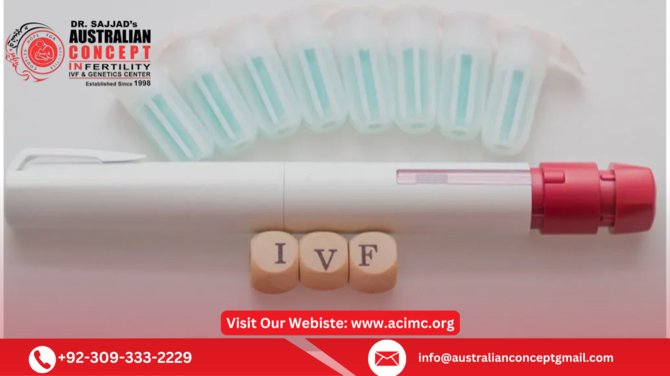When couples decide to begin IVF treatment, one of the first things they hear about is IVF injections. These hormone shots are a vital part of the IVF process and play a major role in increasing the chances of successful fertilization and pregnancy. What Are IVF Injections? IVF injections are hormone-based medications given through subcutaneous
When couples decide to begin IVF treatment, one of the first things they hear about is IVF injections. These hormone shots are a vital part of the IVF process and play a major role in increasing the chances of successful fertilization and pregnancy.
What Are IVF Injections?
IVF injections are hormone-based medications given through subcutaneous or intramuscular shots. These injections help stimulate the ovaries, control the timing of egg release, and prepare the body for egg retrieval and embryo transfer.
They’re a crucial part of the IVF (In Vitro Fertilization) cycle and are typically self-administered at home or under nurse supervision at a fertility clinic.
Why Are IVF Injections Needed?
Natural ovulation usually results in the release of one egg per cycle. In IVF, doctors aim to retrieve multiple mature eggs to increase the chances of fertilization. IVF injections help:
-
Stimulate the ovaries to produce multiple eggs
-
Prevent premature ovulation
-
Mature the eggs for retrieval
-
Prepare the uterus for embryo implantation
Each injection has a specific purpose and is given at a precise time based on your personalized treatment plan.
Types of IVF Injections Used During the Cycle
Here’s a breakdown of the most common IVF injections:
1. Ovarian Stimulation Injections
These medications stimulate the ovaries to produce more eggs.
-
Common drugs: Gonal-F, Menopur, Follistim
-
Goal: Grow multiple mature follicles in the ovaries
2. Ovulation Suppression Injections
These prevent the body from ovulating too early before egg retrieval.
-
Common drugs: Cetrotide, Ganirelix
-
Timing: Usually started mid-way through the stimulation phase
-
Goal: Block premature release of eggs
3. Trigger Shot
This injection triggers the final maturation of the eggs and schedules ovulation.
-
Common drugs: hCG (Pregnyl, Ovitrelle), Lupron
-
Timing: Given 36 hours before egg retrieval
-
Goal: Time the egg retrieval perfectly for mature eggs
4. Progesterone Injections (Post-Retrieval)
These are given after embryo transfer to support the uterine lining and maintain early pregnancy.
-
Common drugs: Progesterone in oil, Crinone (gel form also available)
-
Timing: Starts after egg retrieval or embryo transfer
-
Goal: Prepare the uterus and support implantation
Are IVF Injections Painful?
IVF injections can cause mild discomfort, but most women find them manageable. The discomfort depends on the type of injection:
-
Subcutaneous injections are given just under the skin and feel like a small pinch.
-
Intramuscular injections (like progesterone in oil) can be more uncomfortable and may require help from a partner or nurse.
Tips for reducing discomfort:
-
Use ice or a warm compress before and after
-
Rotate injection sites
-
Massage the area gently after the shot
-
Stay relaxed and follow your nurse’s instructions
Possible Side Effects of IVF Injections
Since these injections involve hormonal changes, you may experience side effects such as:
-
Bloating
-
Breast tenderness
-
Mood swings
-
Headaches
-
Bruising at the injection site
-
Mild abdominal pain
These are usually temporary and manageable. However, in rare cases, ovarian hyperstimulation syndrome (OHSS) can occur and should be monitored closely by your fertility doctor.
Tips for Managing IVF Injections at Home
-
Follow the exact schedule provided by your fertility clinic
-
Store medications properly (refrigeration may be required for some)
-
Use reminder apps or alarms to stay on track
-
Attend all monitoring appointments to track your hormone levels and follicle growth
-
Ask questions if you’re unsure about dosage or technique
Your clinic will guide you step-by-step on how to mix and inject the medication, often with video instructions or in-person demonstrations.
Where to Get IVF Injections in Lahore
If you’re considering IVF in Lahore, the Australian Concept Infertility Medical Center offers full IVF treatment plans, including professional guidance on how to manage IVF injections. Their experienced nursing staff trains couples on how to safely administer hormone shots and provides round-the-clock support throughout the cycle.
With state-of-the-art facilities, modern labs, and personalized care plans, they are a trusted name in fertility treatment in Pakistan.
Emotional Support During IVF Injections
Dealing with daily injections, hormonal changes, and the emotional pressure of IVF can be overwhelming for many couples—especially women. It’s important to understand that emotional ups and downs are normal during this phase. Anxiety, hope, frustration, and fear can all appear together.
Here are a few ways to emotionally manage the injection phase:
-
Involve your partner: Having your spouse assist with injections can help you feel supported and less alone.
-
Join a support group: Talking to others who are also going through IVF can be comforting and empowering.
-
Practice stress-relief techniques: Deep breathing, light exercise, journaling, or talking to a counselor can help keep you mentally calm.
-
Celebrate each step: Whether it’s completing your first injection or finishing the stimulation phase, acknowledging small wins can boost morale.
Most importantly, stay connected with your fertility care team. They’re not just there for medical advicethey’re there to guide and support you emotionally as well.
Final Thoughts
IVF injections are a key part of the IVF journey. While they may seem intimidating at first, with proper guidance and preparation, most couples manage them smoothly. These hormone shots help stimulate egg production, control ovulation, and support early pregnancy giving you the best possible chance of success.
If you’re planning to start IVF, talk to a fertility specialist who can guide you through every step—including understanding and managing your IVF injections with confidence and care.
















